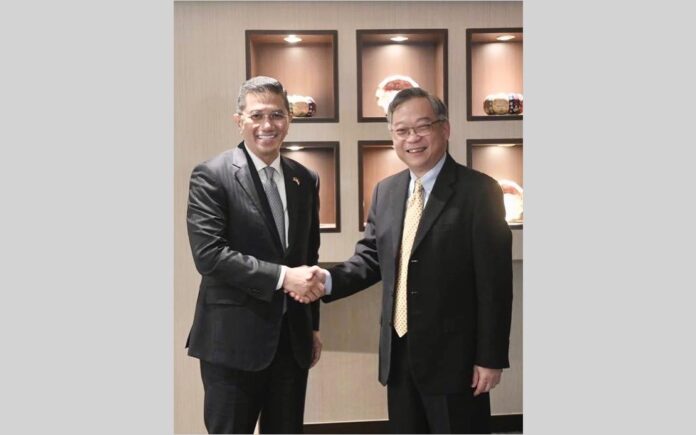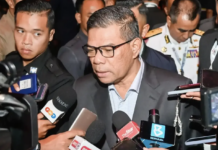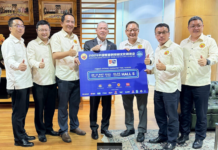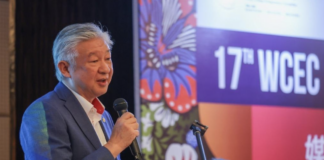KUALA LUMPUR, Aug 23 — Malaysia and Singapore have substantively concluded two frameworks of cooperation in digital and green economies, says the International Trade and Industry Ministry (MITI).
In a statement today, MITI said the two frameworks serve as the basis for future bilateral initiatives related to the digital and green economies, and both countries agreed to work towards signing the frameworks by end-2022.
It said the frameworks were concluded after MITI Senior Minister Datuk Seri Mohamed Azmin Ali and Singapore’s Trade and Industry Minister Gan Kim Yong met in Singapore on Aug 22, 2022.
According to the statement, the digital economy framework will facilitate intensified cooperation in areas such as trade facilitation; digital identities; standards; investment promotion and facilitation in digitalisation, as well as digitalisation of micro, small and medium enterprises (MSMEs).
“This will unlock a wider range of opportunities, benefiting the businesses, workers, and communities in both countries,” it said.
On the green economy front, it said Singapore and Malaysia will strengthen collaboration to decarbonise their industries, and enable businesses and workers to seize arising opportunities.
It added that under the green economy framework, both countries agreed to cooperate in next-generation mobility, including electric and autonomous vehicles; environmental, social and governance (ESG) policy exchanges; capacity development for exporters; low-carbon solutions including hydrogen and carbon capture, utilisation and storage; carbon credits industry collaborations; and renewable energy technology standards.
Azmin underscored that the agreed areas of cooperation in green economy are in line with the 12th Malaysia Plan’s goal of promoting green industries and markets, reducing pollution and greenhouse gas emissions, and conserving natural resources.
The senior minister reaffirmed that the effort was undertaken as part of the government’s initiative to expedite the transition of the local manufacturing sector, especially the SMEs, to ESG and green economy.
“This will allow them to integrate into the regional and global supply chains, bolstering supply chain resilience in addition to meeting the rising demand of local consumers for products that are ESG-compliant,” he said.
In particular, he said, through this cooperation, both countries could exchange best practices in terms of quantification of carbon emissions in the manufacturing sector.
On the digital economy framework, Azmin expressed confidence that it is in line with the MyDigital agenda, which will further empower businesses to digitally integrate their operations globally, hence enhancing economic competitiveness.
Meanwhile, Gan said the two frameworks mark a milestone in the long-standing and multifaceted partnership between Singapore and Malaysia.
He said the agreements lay the foundation for further cooperation between both countries across various areas of the green and digital economies in Singapore and Malaysia, to deliver tangible benefits to the communities and businesses.



















